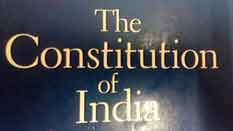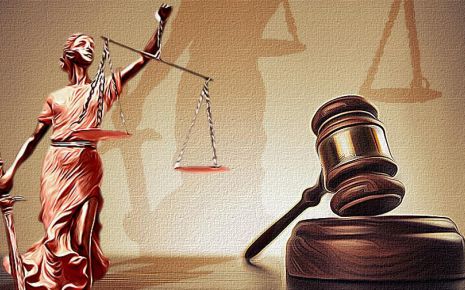Balancing The Pros And Cons Of AI And Predictive Analytics In Legal Decision-Making: Why Human Intervention And Oversight Remain Vital
Artificial Intelligence (AI) has been around since the early 1950s and has
become the buzz of the tech world. AI is not based on human-like carbon-based
tissues, but rather silicon-based chipsets of the processors that store a
humongous quantity of data, process it and generate the required output. Before
entering the discussion, it is pertinent to understand what AI is. John McCarthy
coined the term AI in the year 1955 and termed it the "science and engineering
of making intelligent machines."[1] AI comprises various learnings like machine
learning, ANN, and deep learning. These disciplines are comprised of AI
algorithms that seek to create expert systems that make predictions or
classifications based on input data.[2]
AI has enabled computers and machines to mimic human intelligence for problem-solving. An AI and its process intelligence are not confined to biologically observable processes. What this means is that there needs to be a shift from the anthropocentric approach to the understanding of AI. This bias of wanting AI to behave just like humans has been the approach from the beginning of the theory of AI. A brilliant example of the same is that of 'Turing's test.' The criteria for intelligence for any machine in this test is to imitate the conversational skills of a human. If the machine can do the same it would be able to pass the test.
Predictive analytics is the fundamental procedure of any AI system. This is especially true for something like a large-scale AI which analyses a multitude of data to predict an outcome based on the most likely result. Predictive analytics is the process of using data to forecast future outcomes.
The process uses data analysis, machine learning, and statistical models to find patterns that might predict future behaviour. Organizations can use historic and current data to forecast trends and behaviours seconds, days, or years into the future with a great deal of precision. Give an example � of how predictive analysis is used by companies to analyse sales, and how the stock market uses predictive analysis to determine the fluctuations in the market.
The legal industry is highly human-centric, which is due to the obviousness of the subjectivity that this industry possesses. The legal industry was supposed to be one of the few industries to be affected by AI.[3] As we see presently, AI has replaced certain jobs such as document review, contract analysis, legal research, etc. A prominent example of such an AI system is the "Contract Intelligence" platform, known as COiN, developed by JP Morgan. COiN assists in the document review process for a specific category of contracts.
It employs unassisted AI, and image recognition to compare and identify different clauses, thereby minimizing human involvement post-deployment. This has boosted the efficiency in the legal profession, as well as reduced the requirement of excessive and time-consuming manual labour.
Even in the working of courtrooms, AI can be beneficiary. The implementation of AI in the courtrooms can lead to work like the announcement of court procedures and optimising legal databases making them even more available to the public as well as professionals. AI has already been adopted in a few countries like China and USA where it has even helped the judges on decision making by advising them.[4]
In the future, this will only increase as AI becomes more and more integrated with our daily lives. It would be able to help quickly evaluate and process enormous amounts of legal documents and do legal research at an unmatched pace. AI will also be able to do what is now being called 'predictive analytics.' This means that AI systems can predict the decision of a particular legal proceeding, based on the analysis of the past data.
For a better understanding of the employment of AI in the legal field, the same must be divided as follows:
While the reforms introduced by AI in the second category are a welcome move, especially in the case of the Indian Legal System which suffers from a lack of infrastructure and is in desperate need of speedy reforms, the question concerning the first category of work is much more complex.
A host of issues will arise when AI starts taking part in legal decision-making both over a short period as well as over a prolonged period.
Some of them are as follows:
Deriving from the problem mentioned above few fields of law, employing AI would be particularly affected. One such field is that of family law. This field of law requires a high emotional efficacy to support emotionally sensitive issues. Some of them are divorce, child custody, adoption, etc. In such cases, human interaction and emotions are required while dealing with the issue. Providing special attention to emotional and social dynamics is crucial in dealing with family law cases, as opposed to relying solely on analytical assessments based on previous cases. Family issues are complex and differ from individual to individual; hence it is vital to consider individual circumstances while making judgments.
Using AI in such cases lacks the depth required to understand the broader implications of these emotional intricacies. Therefore, while AI can aid in providing insights, predictions, or analysis, human involvement is necessary to ensure decisions are made while considering the nuances and complexities of each emotionally charged situation. Ultimately, supplementing AI with human expertise is essential while dealing with cases that require human interaction accompanied by emotions, such as family law cases.[5]
From the discussion mentioned above, we can conclude the fact that AI will lead to a high-level disruption in every aspect of law. Technology will probably lead to changing the manner of work in the profession both for the better and for the worst. In our labour-intensive country, the impacts will be particularly high with a plethora of people especially in documentation and research work likely to lose their means of livelihood.
At the same time, however, it would lead to a drastic increase in efficiency and saving of time & resources for our courts, something which is in dire need.
The advent of AI technology has opened a wide range of possibilities. AI can simplify operations, reduce costs, and enhance efficiency through its predictive analytics and machine learning capabilities. However, it is important to recognize that AI, like any innovative technology, is not a universal solution. Concerns have arisen regarding the impact of AI on the legal sector. Moreover, the potential for algorithmic bias and a lack of accountability have raised significant ethical and legal issues.
To fully integrate AI into the legal landscape, a nuanced approach is needed. Policymakers, legal professionals, and technology experts should carefully assess the risks and benefits of AI and establish ethical and legal frameworks. It is essential to prioritize the values of due process, transparency, and judicial independence, while also ensuring algorithmic fairness and accountability in policy deliberations.
In conclusion, while AI has great potential to enhance the legal profession, it should not completely replace human judgment. Combining human expertise with AI-powered technology can yield optimal results in terms of efficiency, accuracy, and fairness. It is crucial to adopt a balanced approach to integrating AI into the legal sector, one that respects the noble principles of our justice system while embracing the advantages of advanced technology. By doing so, we can create a legal system that is responsive to people's needs, promotes efficiency and innovation, and serves the cause of justice fairly.
End-Notes:
AI has enabled computers and machines to mimic human intelligence for problem-solving. An AI and its process intelligence are not confined to biologically observable processes. What this means is that there needs to be a shift from the anthropocentric approach to the understanding of AI. This bias of wanting AI to behave just like humans has been the approach from the beginning of the theory of AI. A brilliant example of the same is that of 'Turing's test.' The criteria for intelligence for any machine in this test is to imitate the conversational skills of a human. If the machine can do the same it would be able to pass the test.
Predictive analytics is the fundamental procedure of any AI system. This is especially true for something like a large-scale AI which analyses a multitude of data to predict an outcome based on the most likely result. Predictive analytics is the process of using data to forecast future outcomes.
The process uses data analysis, machine learning, and statistical models to find patterns that might predict future behaviour. Organizations can use historic and current data to forecast trends and behaviours seconds, days, or years into the future with a great deal of precision. Give an example � of how predictive analysis is used by companies to analyse sales, and how the stock market uses predictive analysis to determine the fluctuations in the market.
The legal industry is highly human-centric, which is due to the obviousness of the subjectivity that this industry possesses. The legal industry was supposed to be one of the few industries to be affected by AI.[3] As we see presently, AI has replaced certain jobs such as document review, contract analysis, legal research, etc. A prominent example of such an AI system is the "Contract Intelligence" platform, known as COiN, developed by JP Morgan. COiN assists in the document review process for a specific category of contracts.
It employs unassisted AI, and image recognition to compare and identify different clauses, thereby minimizing human involvement post-deployment. This has boosted the efficiency in the legal profession, as well as reduced the requirement of excessive and time-consuming manual labour.
Even in the working of courtrooms, AI can be beneficiary. The implementation of AI in the courtrooms can lead to work like the announcement of court procedures and optimising legal databases making them even more available to the public as well as professionals. AI has already been adopted in a few countries like China and USA where it has even helped the judges on decision making by advising them.[4]
In the future, this will only increase as AI becomes more and more integrated with our daily lives. It would be able to help quickly evaluate and process enormous amounts of legal documents and do legal research at an unmatched pace. AI will also be able to do what is now being called 'predictive analytics.' This means that AI systems can predict the decision of a particular legal proceeding, based on the analysis of the past data.
For a better understanding of the employment of AI in the legal field, the same must be divided as follows:
- Legal Decision-Making: The primary activity of legal decisions being made by AI based on precedents and prior data.
- Non-decision work: Any other activity consisting of activity other than giving judgements like legal drafting, or legal research.
While the reforms introduced by AI in the second category are a welcome move, especially in the case of the Indian Legal System which suffers from a lack of infrastructure and is in desperate need of speedy reforms, the question concerning the first category of work is much more complex.
A host of issues will arise when AI starts taking part in legal decision-making both over a short period as well as over a prolonged period.
Some of them are as follows:
- The question of employment: Before taking into consideration the second category of work, let us discuss what the problem would be with the first category. Giving due credit to AI for how much it will reform the legal system, the same will also lead to the loss of jobs. The legal system apart from judges and advocates employs a plethora of people especially when talking about the Indian Legal System.
- The question of precedent: When we shift our focus to the second type of work, even more complicated issues start to emerge. An AI as mentioned in the blog works on 'predictive analytics.' This means that the decision made by any algorithm in an AI is based on a preceding incident that has occurred in the past or is very similar to the current issue. Giving this task to AI will lead to a lack of creative thinking in the judiciary. A new precedent that is very different from the preceding laws will always be very difficult to set.
- Stagnation of Legal System: Deriving from the problem mentioned above. The same would lead to stagnation in the interpretation of the law. This would especially affect fields of law like Constitutional Law which is wide and open to interpretation by the judiciary. This would lead to an institution that is already very lethargic in adopting changes, being not able to match the changing societal needs. Gradually making it irrelevant to society.
- The question of Accountability: Judges although not much are still accountable for the decisions which are made by them. They can very well be impeached through the Constitutional process under Article - 124 (4) for the Supreme Court judges and under Article � 218 for the High Court judges. The same however cannot be applied to judges who are based on AI. The accountability will be either on the program itself as it is an artificial person for law or the company which has developed the program code.
- Decision on Ethics and Morality: While rationality is one of the key features of any judgment, so are ethics and morality. An AI system might not be the most appropriate judge in taking to analyze the ethics and morality in question. One key example of how ethics play a role in judgment delivery can be implied from the fact that the Hon'ble Supreme Court recently in its judgment of Haldwani, Uttarakhand prevented the eviction of people from railway land near the railway station. The court has said that the issue has a 'human angle'. Even if there are arguments in favor of how technology can read human emotions, the same is not without its biases.
Deriving from the problem mentioned above few fields of law, employing AI would be particularly affected. One such field is that of family law. This field of law requires a high emotional efficacy to support emotionally sensitive issues. Some of them are divorce, child custody, adoption, etc. In such cases, human interaction and emotions are required while dealing with the issue. Providing special attention to emotional and social dynamics is crucial in dealing with family law cases, as opposed to relying solely on analytical assessments based on previous cases. Family issues are complex and differ from individual to individual; hence it is vital to consider individual circumstances while making judgments.
Using AI in such cases lacks the depth required to understand the broader implications of these emotional intricacies. Therefore, while AI can aid in providing insights, predictions, or analysis, human involvement is necessary to ensure decisions are made while considering the nuances and complexities of each emotionally charged situation. Ultimately, supplementing AI with human expertise is essential while dealing with cases that require human interaction accompanied by emotions, such as family law cases.[5]
From the discussion mentioned above, we can conclude the fact that AI will lead to a high-level disruption in every aspect of law. Technology will probably lead to changing the manner of work in the profession both for the better and for the worst. In our labour-intensive country, the impacts will be particularly high with a plethora of people especially in documentation and research work likely to lose their means of livelihood.
At the same time, however, it would lead to a drastic increase in efficiency and saving of time & resources for our courts, something which is in dire need.
The advent of AI technology has opened a wide range of possibilities. AI can simplify operations, reduce costs, and enhance efficiency through its predictive analytics and machine learning capabilities. However, it is important to recognize that AI, like any innovative technology, is not a universal solution. Concerns have arisen regarding the impact of AI on the legal sector. Moreover, the potential for algorithmic bias and a lack of accountability have raised significant ethical and legal issues.
To fully integrate AI into the legal landscape, a nuanced approach is needed. Policymakers, legal professionals, and technology experts should carefully assess the risks and benefits of AI and establish ethical and legal frameworks. It is essential to prioritize the values of due process, transparency, and judicial independence, while also ensuring algorithmic fairness and accountability in policy deliberations.
In conclusion, while AI has great potential to enhance the legal profession, it should not completely replace human judgment. Combining human expertise with AI-powered technology can yield optimal results in terms of efficiency, accuracy, and fairness. It is crucial to adopt a balanced approach to integrating AI into the legal sector, one that respects the noble principles of our justice system while embracing the advantages of advanced technology. By doing so, we can create a legal system that is responsive to people's needs, promotes efficiency and innovation, and serves the cause of justice fairly.
End-Notes:
- Stanford University, Human-Centred Artificial Intelligence, AI Definitions, https://hai.stanford.edu/sites/default/files/2020-09/AI-Definitions-HAI.pdf (last visited Apr 12, 2024).
- IBM- India, https://www.ibm.com/topics/artificial-intelligence (last visited Apr 4, 2023).
- Satyam Sharma, Scared of ChatGPT will take your job? Skills or jobs that won't be replaced by AI, ECONOMIC TIMES (Apr. 02, 2024, 10:11 AM), https://economictimes.indiatimes.com/news/how-to/skills-or-jobs-that-wont-bereplacedbyautomationartificialintelligenceinthefuture/articleshow/92600222.cms?from=mdr.
- Alena Zhabina, How China's AI is automating the legal system, DEUTSCHE WELLE ((May 10, 2023, 7:00 PM), https://www.dw.com/en/how-chinas-ai-is-automating-the-legal-system/a-64465988.
- Thomas, P. A., Liu, H., & Umberson, Family Relationships and Well-Being, 1(3) National Library of Medicine, https://www.ncbi.nlm.nih.gov/pmc/articles/PMC5954612/.
Law Article in India
Legal Question & Answers
Lawyers in India - Search By City
LawArticles
How To File For Mutual Divorce In Delhi

How To File For Mutual Divorce In Delhi Mutual Consent Divorce is the Simplest Way to Obtain a D...
Increased Age For Girls Marriage

It is hoped that the Prohibition of Child Marriage (Amendment) Bill, 2021, which intends to inc...
Facade of Social Media

One may very easily get absorbed in the lives of others as one scrolls through a Facebook news ...
Section 482 CrPc - Quashing Of FIR: Guid...

The Inherent power under Section 482 in The Code Of Criminal Procedure, 1973 (37th Chapter of t...
The Uniform Civil Code (UCC) in India: A...

The Uniform Civil Code (UCC) is a concept that proposes the unification of personal laws across...
Role Of Artificial Intelligence In Legal...

Artificial intelligence (AI) is revolutionizing various sectors of the economy, and the legal i...








Please Drop Your Comments